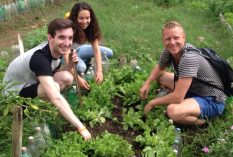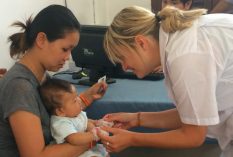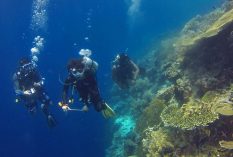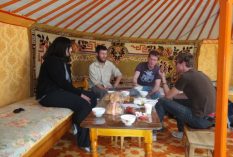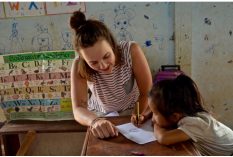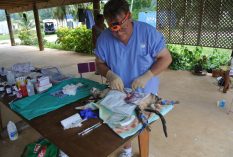Continued from Part 1: Why meaningful travel is a must-have-skill on tomorrow’s job market
I recently went to a New York City event for university alumni of an Asia-based study abroad program we all did about seven years ago, and I was blown away by the obvious difference the early international experience made in our careers.
One alumna had become a lawyer at an international capital markets firm and was staffed on numerous Asia deals that actively drew on his previous experience in the region. Another, who had spent several years teaching English in rural China after graduation, now runs the marketing department of a major university’s campus in China. Both utilise their Mandarin language skills on a personal and professional basis. Then there’s me, who’s spent the last two years working in an international sales and government relations role with a focus on emerging markets, including Asia, Latin America, and Africa.
This kind of event also opened my eyes to another benefit of my various international experiences that I’ve only begun to reap: my personal network. I realise now that I know a lot of people all over the world in almost every industry through one or two degrees of separation! It’s a huge asset in my personal life, but it’s also a big bonus for who I work for, and I’ve actually gotten several interviews in part because of the leaders, investors, and governmental officials I have relationships with. I simply had to learn to make that overlooked aspect of my experience come across as valuable as it really is.
Communicating your experience to employers
One of the biggest challenges for travellers is explaining the value of what they did in a way that makes sense to an employer. Many employers actually pick up on this difficulty and note that candidates with global experience often sell themselves — and their experience — short because they haven’t put the time into practising how to communicate about it.
Ideally, you want to be mindful of this challenge before you even leave for an extended time overseas. Keeping track of your experiences, reflecting on how you’re changing, and making notes of important challenges and lessons learned while you’re on the road in not only useful for personal development, but it’s also an experience database to pull from when you return home.
If you’ve already returned home from time abroad, it’s useful to spend significant time reflecting on the most stand-out experiences and what they taught you about yourself and how that could be tied into your path forward. For example, the time I spent studying meditation in India taught me how to bring mindfulness, presence, and patience to all parts of my life, including the workplace, making me a better leader and overall team player. Trekking alone for two weeks in Nepal taught me to sharpen and trust my gut instincts and make autonomous decisions in a high-stress environment.
Putting travel experience on a resume
Did you know that recruiters spend a mere six seconds evaluating a resume?
That’s not long to provide a compelling overview of your history, skills, and ambition that tells the person reading it exactly what you’ll excel at in their organisation. It’s the first front in the battle to land your dream job, and it needs to be tended to very deliberately.
Many travellers wonder whether or not to include their experience on their resume at all, or where to include it. If you volunteered, worked, or interned overseas for at least a month, a summary of that experience should go under your work history. Like any other part of your resume, it should emphasise your contribution to the organisation, not the work of the organisation itself.
You should also make sure to include some form of quantification — numbers make your story more objective and show exactly the kind of value you bring to the table. Did you teach a class of 25, collaborate with 4 local organisations, lead a workshop for 100 women, make 10 presentations to potential donors, or raise the productivity of a non-profit organisation by 15%? This is a critical component in translating experiences from one vastly different industry and environment to another.
If you didn’t volunteer or work abroad, but travelled independently or executed a personal project abroad, this can still be displayed on your resume, but it should go under “other experience” after education and professional work history has been discussed. If the time off exceeds a few months, it’s also an important opportunity to confidently address the gap in employment.
On your resume, this kind of time abroad might be described as, “Independently travelled through 8 different countries in sub-Saharan Africa while producing a documentary about financial technology in the region. Simultaneously managed an international development blog that received 25,000 hits per month.”
Alternatively, my resume reads “Travelled through 19 countries in 14 months while pursuing a freelance writing career that resulted in numerous publications on Huffington Post, Fast Company, Business Insider, and Fortune.com. Additionally, launched an independently-run consulting business that coaches dozens of young professionals through international career transitions.”
Yours could also simply state, “Independently travelled through Southeast Asia for 4 months between October 2015 and February 2016. Activities included volunteering at a hospital in Cambodia, jungle trekking for a week in Thailand, and motorbiking the entire length of Vietnam.” This example is much less professionally-minded, but it’s still expressing what you did with confidence and makes you interesting enough to interview.
Lastly, remember to always be honest and realistic about the skills and experience you developed. Don’t write that you became fluent in Portuguese if you couldn’t answer an email or an interview question in the language.
Talking about travel experience in an interview
If you’ve travelled abroad, you’ve probably had some experience in picking up a new language, even a few words. The interview is a similar exercise in talking about the work you’ve done in one industry or one part of the world using a tone and vocabulary that makes sense to the new organisation you’re targeting.
In prepping for an interview, you’ll extensively research the company and role you’re applying for, and in doing so, you’ll begin to pick up on how the organisation speaks about itself. Adopt that tone and vocabulary when you reflect on your overseas work. If you’re interested in consulting, for example, you might talk about value-add, analysis, stakeholders, and deliverables. Tell your story in their lingo and the importance of what you did is less likely to slip past them.
After you thoroughly understand the company and the position, you need to deeply reflect on your work and personal history. Here are some questions to help you get mentally prepared for an ad-hoc discussion of your travel experiences:
- What is the recruiter probably looking for besides a certain academic and professional background? What personal traits would be beneficial in this role?
- How have I developed those traits while travelling overseas?
- How can those traits help me perform in the unpredictable circumstances likely to arise on this job?
- Can I tell a story about my skills that show I can win over an important stakeholder, or adapt quickly to a changing work environment?
- How has travel helped me handle stress, teamwork, and ambiguity?
- How has my time abroad inspired and accelerated my next career move?
- What am I passionate about and how did my experiences overseas enhance that?
- What have I experienced that’s likely to be unique from anyone else applying for this job?
- How did I demonstrate initiative and entrepreneurial qualities while travelling?
After this reflection period, the last step is to inventory and study your experience to help you be ready to clearly illustrate the skills and traits you summarised on your resume. I recommend making a list of 15-20 most common interview questions and brainstorming 2 examples from your experience that correspond to each question. Many will be repeated and able to be reused across different contexts, but the goal should be to have at least 10 strong stories and examples from your past that could be used to respond to a variety of common questions.
Land the dream job
There’s no doubt your time overseas will result in a reservoir of experience that translates into compelling resumes, interview-worthy stories, and concrete capabilities that lead to tremendous long-term success in the workplace. Whether you want to join a travel agency, start a franchise (like you can do with Explorer Travel), or explore the travel and leisure industry in some other way, your time overseas will prove valuable.
As long as you communicate the depth of your own contribution with confidence and bridge the gap between what you’ve done in the past, including travel, and what you want to do next through a well-researched and enthusiastic articulation of your skill set, you’ll be able to successfully move into that exciting new opportunity you’ve got your eye on.


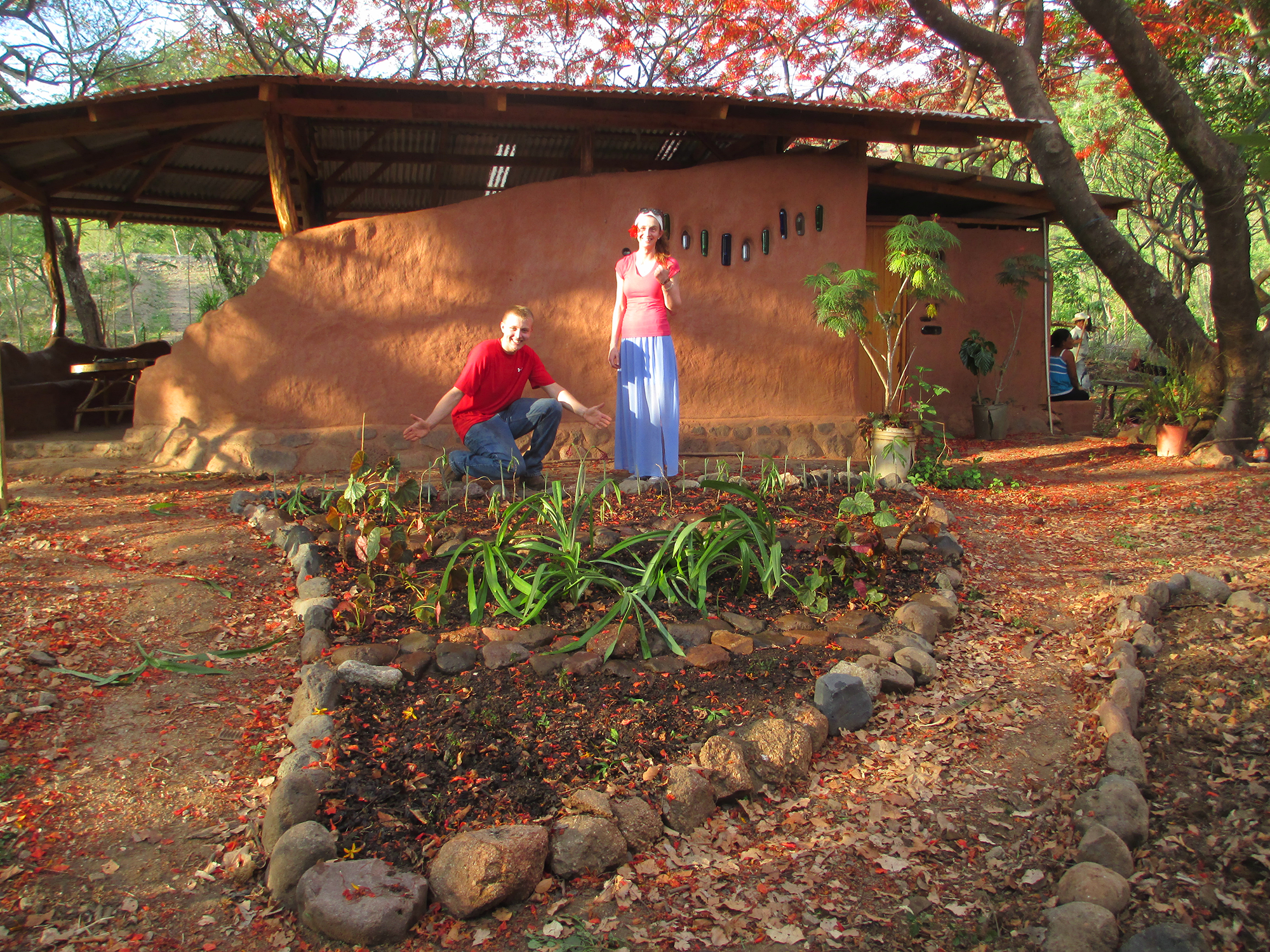

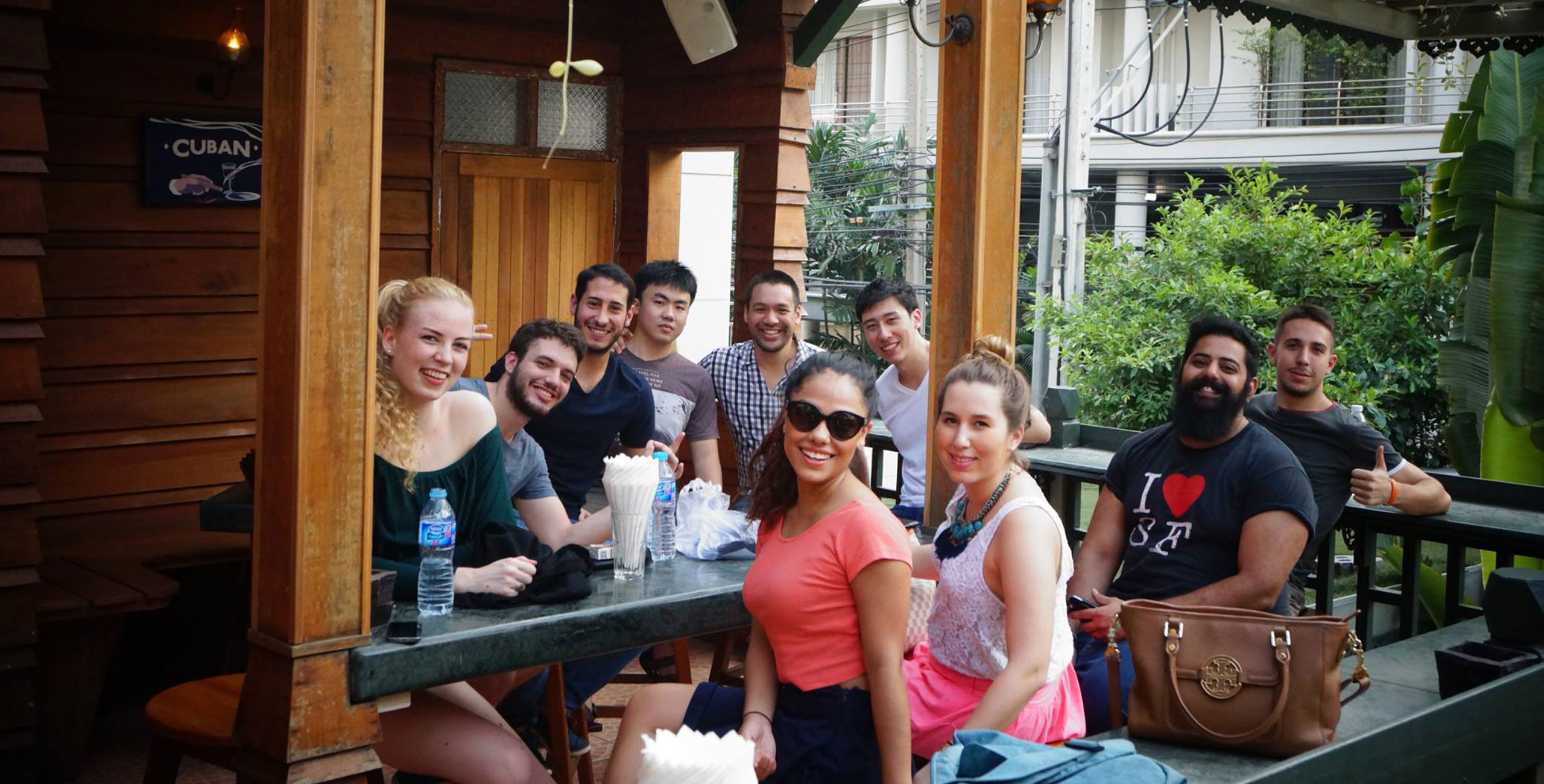
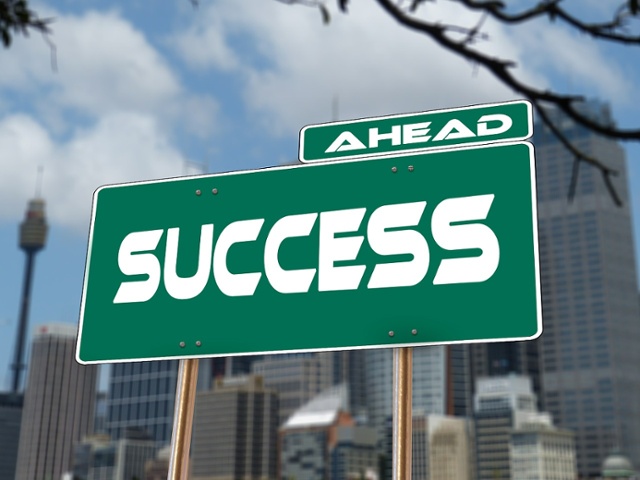 Another friend with no experience in the fashion world took an unpaid internship at one design house and after a year, gained enough firsthand know-how to design the new young men’s line at another huge brand (paid, very paid). An even more ballsy example, a client of mine with a degree in International Relations sent a cheeky email (or five) to the director of Sephora in London, sent him free ideas, and wound up landing a creative advertising role. Unpaid, but it allowed her to transition into the business world.
Another friend with no experience in the fashion world took an unpaid internship at one design house and after a year, gained enough firsthand know-how to design the new young men’s line at another huge brand (paid, very paid). An even more ballsy example, a client of mine with a degree in International Relations sent a cheeky email (or five) to the director of Sephora in London, sent him free ideas, and wound up landing a creative advertising role. Unpaid, but it allowed her to transition into the business world. Another good reason to take an unpaid internship is if it’s something you’ve managed to create for yourself, let’s say at a big brand name company or sexy start-up that isn’t hiring and doesn’t offer paid internships, but you met the CEO or HR director and pitched yourself and they agreed to take you on. That foot in the door is probably worth it and an opportunity you most likely won’t get otherwise.
Another good reason to take an unpaid internship is if it’s something you’ve managed to create for yourself, let’s say at a big brand name company or sexy start-up that isn’t hiring and doesn’t offer paid internships, but you met the CEO or HR director and pitched yourself and they agreed to take you on. That foot in the door is probably worth it and an opportunity you most likely won’t get otherwise.
 A former NYC management consultant turned legal nomad, Elaina Giolando writes about the intersection of career, life, and travel for today’s 20-somethings. She currently works as an international media representative, traveling to a new country every 3 months to live and work. In her spare time, she focuses on providing her peers inspiration to proactively create rewarding and unconventional lifestyles. Follow Elaina on her blog
A former NYC management consultant turned legal nomad, Elaina Giolando writes about the intersection of career, life, and travel for today’s 20-somethings. She currently works as an international media representative, traveling to a new country every 3 months to live and work. In her spare time, she focuses on providing her peers inspiration to proactively create rewarding and unconventional lifestyles. Follow Elaina on her blog 
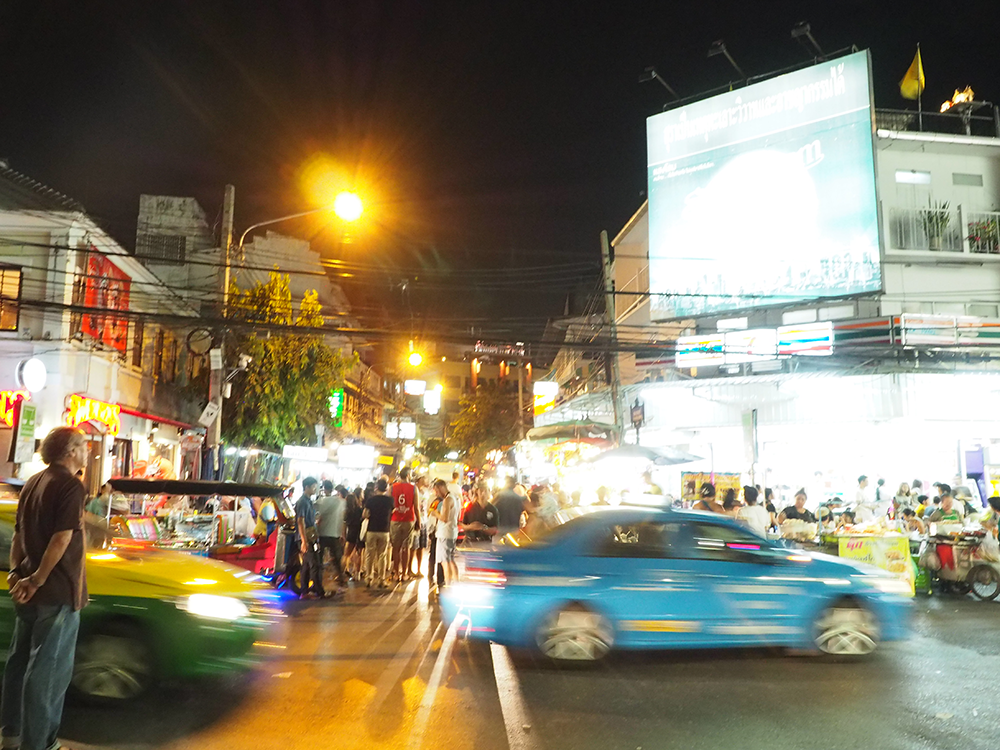


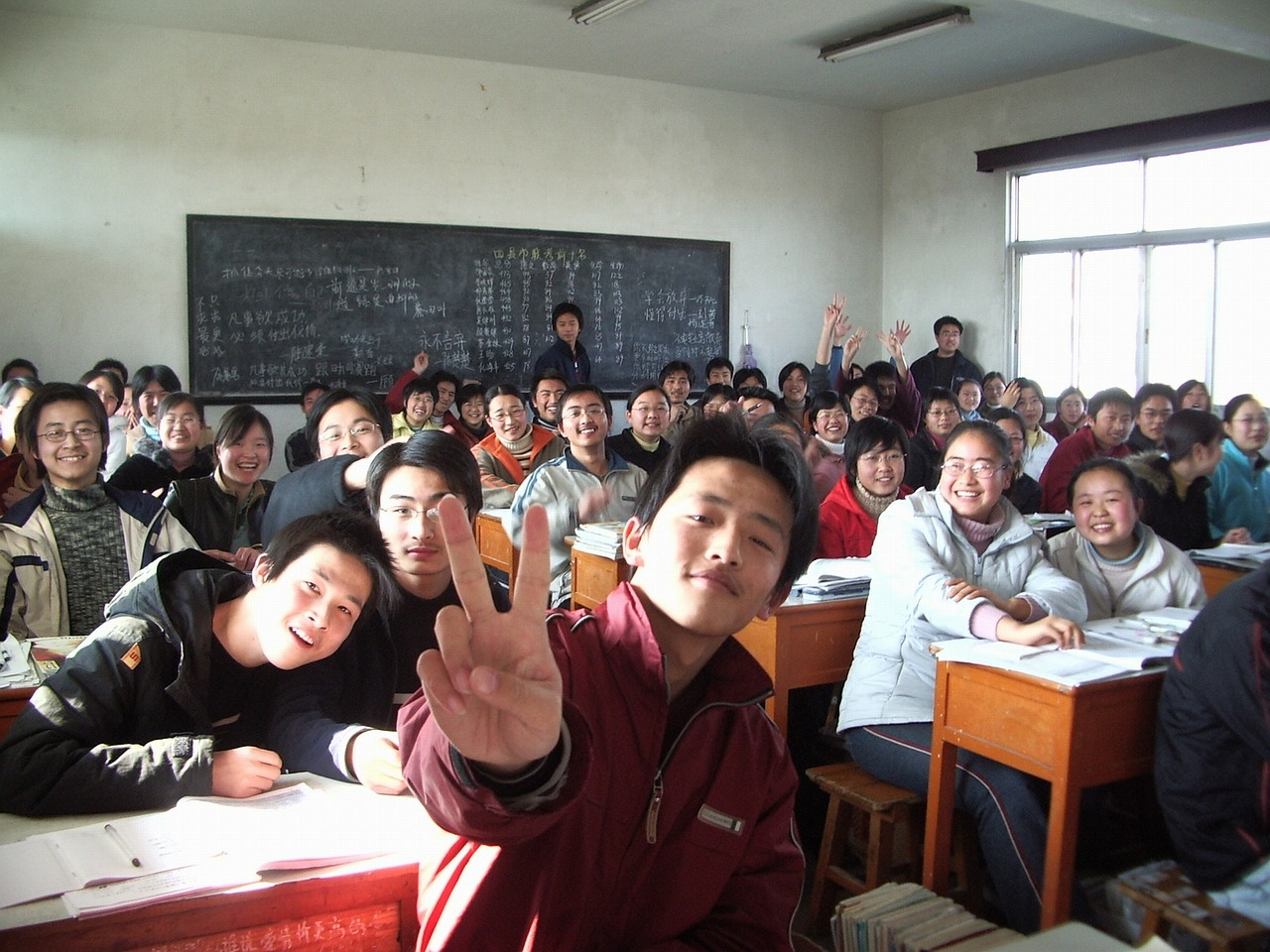
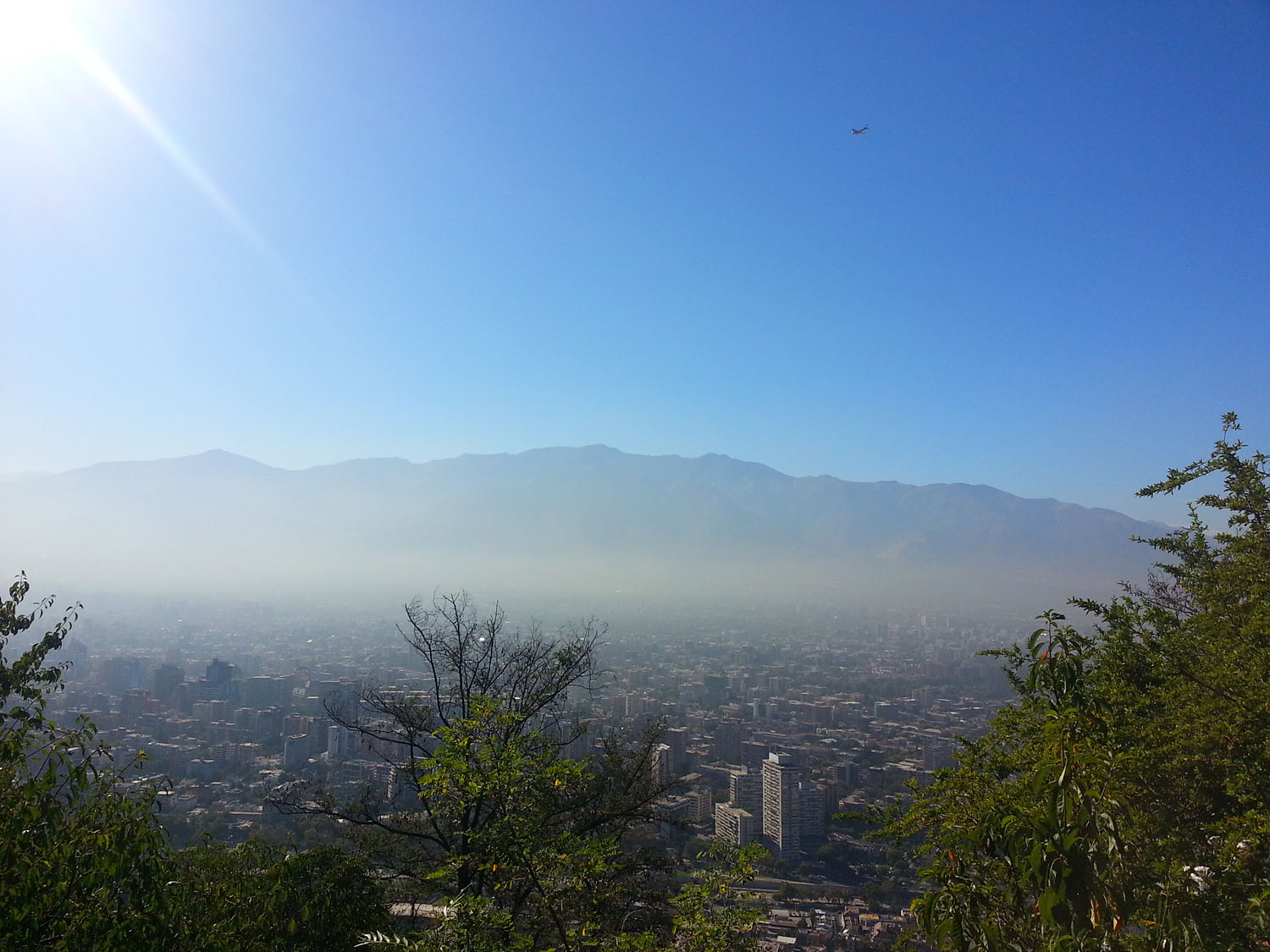
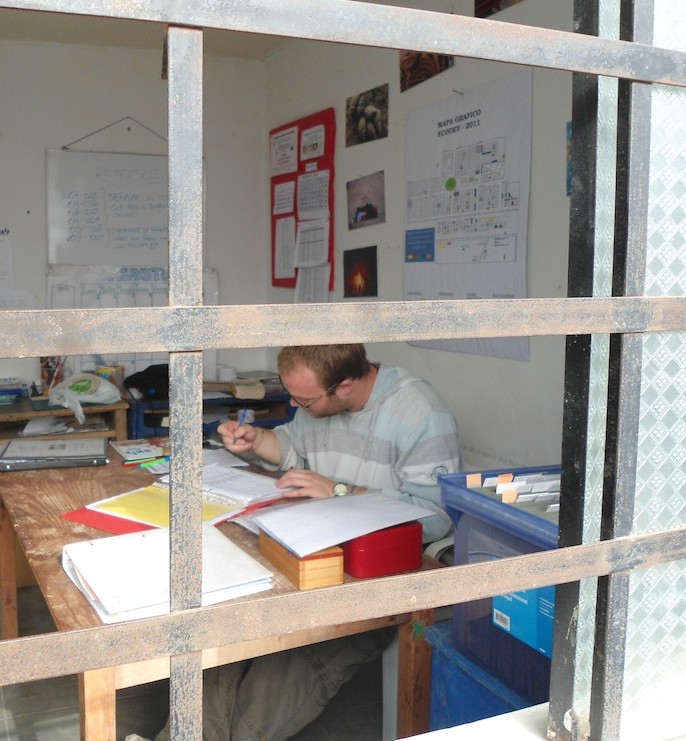 I actually landed every interview I wanted and beat out many of my classmates who actually interned in consulting, receiving an offer to join IBM’s Global Business Services division in New York City. Because my resume was very different from my peers and I learned how to share the experience I gained abroad in a way that was relevant to the consulting industry, it created a “package” that made sense to a wide variety of employers, both local and global.
I actually landed every interview I wanted and beat out many of my classmates who actually interned in consulting, receiving an offer to join IBM’s Global Business Services division in New York City. Because my resume was very different from my peers and I learned how to share the experience I gained abroad in a way that was relevant to the consulting industry, it created a “package” that made sense to a wide variety of employers, both local and global.

 Create an Inventory of Experience
Create an Inventory of Experience